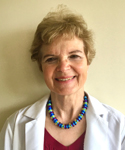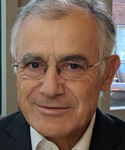Rheumatology leaders at Beth Israel Deaconess Medical Center, Boston, are working in close collaboration to adapt to changes in response to the COVID-19 pandemic. Lisa Fitzgerald, MD, acting clinical chief, Division of Rheumatology and director of the Lupus Center, and George Tsokos, MD, professor of medicine at Harvard Medical School and chief of the Division of Rheumatology and Clinical Immunology spoke with The Rheumatologist about how the pandemic is affecting their practice.
Q: How are you and your staff adapting to the sudden changes brought about by the pandemic?
Dr. Fitzgerald: We have tried to adapt to the changes since the coronavirus crisis emerged in a variety of ways. Things are changing, sometimes on a daily basis, and definitely on a weekly basis. Between one and three of our physicians have been in the office Monday through Friday to help the nursing staff with questions and sign documents and prescriptions. Everyone working from home is in touch with the office by phone and email.
Our staff members are calling patients daily to confirm their participation on video or telemedicine visits now and to reschedule them for future appointments in the office much later in the spring or summer. We hold teleconference calls every afternoon, and this call is to inform our staff on guidance and decisions made on a daily basis by the department of medicine and the hospital and to discuss issues that arose during the implementation of telemedicine. We also compare notes on scientific data and resources we have heard about, such as the new COVID-19 Global Rheumatology Alliance’s patient registry , and about drug shortages, such as hydroxychloroquine [HCQ]—especially during the first two weeks of the crisis.
Q: How is your research being affected by COVID-19?
Dr. Tsokos: We first organized the care of the animals. We appointed a minimal number of members to visit the animal room and perform whatever is needed to keep the colony. We decided not to start new experiments and not to initiate new breedings. Only long-standing experiments [have been] allowed to continue. The goal has been to limit the number of people, both researchers and animal facility staff, needed.
In the lab, I allow only a few people in every day and not to work in the same bay. We use teleconference for our weekly journal clubs, grand rounds and lab seminars. In parallel, the senior investigators meet weekly virtually to discuss plans, papers and grants, and analyze data we had accumulated. We have a limited number of clinical trials that we continue at a minimal pace. Some have been modified by the sponsors’ limited activities. Obviously, no new enrollments are taking place.
Q: What types of appointments are you conducting, and what are patients’ chief concerns regarding COVID-19’s potential risks and symptoms?
Dr. Fitzgerald: For the most part, we are scheduling patients in telemedicine slots in the same way as if they were in the office. In other words, we are trying our best to be very productive. Our patients are very appreciative of the chance to review their health situation in this way.
Many of our patients are very anxious about COVID-19, and some have had family members who have tested positive for COVID-19. So there have been a lot of questions surrounding these issues. Especially in the beginning, many patients had questions about whether to continue their immunosuppressive medications [even without any infectious symptoms], whether it be [disease-modifying anti-rheumatic drugs] or biologics. We settled these questions and advised the vast majority of patients to continue their medications as usual.
We find that many patients are misinformed about the symptoms of COVID-19, thinking a runny nose and a cough related to allergies represents possible disease. And we definitely tell them they must also have a fever to have the infection. We have referred appropriate patients for COVID-19 testing. We do have patients who are healthcare workers who have questions about whether they should work near COVID-19 patients. We address this on a case-by-case basis.
Q: How is the pandemic affecting you and your staff personally?
Dr. Fitzgerald: Our staff has been phenomenal, and we are very fortunate to have a highly experienced and talented manager, Pat Harris, who keeps everyone sane and focused. Three of our six fellows have been deployed for [intensive care unit] or medical floor duty, and we are extremely proud of them and their work. Our remaining three fellows are helping with the extra consults and telemedicine visits. We are grateful to all our fellows for their excellent work and care of our patients.
We are concerned, worried and saddened by the suffering and the loss of life COVID-19 is causing in our country and the world. Our goal as physicians is to stay focused so that we may take care of our patients, our families and ourselves, and convey a sense of hope that things will be better.
Dr. Tsokos: People are concerned about their health and the health of their families. We have found it very important to be in continuous touch with all members of our division to discuss updates, progress, solutions to emerging problems and to adjust fast to a situation that changes with the speed of light. We adapt to telemedicine by phone and video, and we adjust to our colleagues being enlisted to provide help to the hospital as it becomes overloaded with COVID-19 patients. It is a difficult time, but we are resilient, and we will overcome.
Carina Stanton is a freelance science journalist based in Denver.





